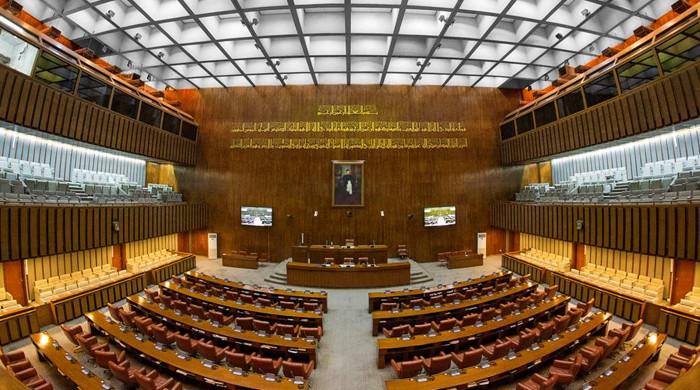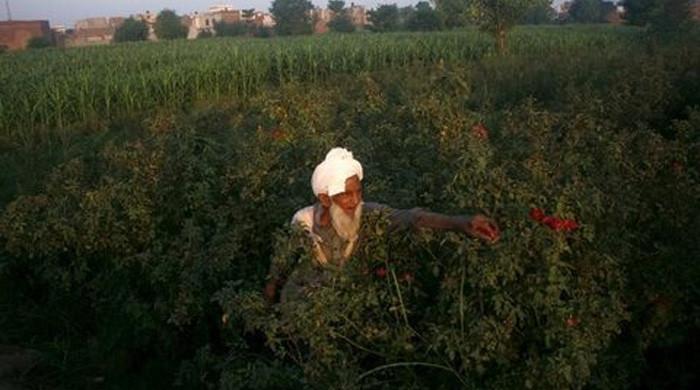'High-pressure system': Heatwave likely to grip Pakistan from tomorrow
Day temperatures are predicted to remain 5-7 °C above normal, warns PMD
April 25, 2025

ISLAMABAD: The Pakistan Meteorological Department (PMD) has issued a heatwave alert, forecasting soaring temperatures across the country from April 26 to 30 due to the arrival of a high-pressure system in the upper atmosphere.
The weather system is expected to develop on April 26 and grip most parts of the country by April 27, leading to a significant rise in daytime temperatures.
Day temperatures are predicted to remain 5-7 °C above normal in the southern regions including Sindh, southern Punjab, and Balochistan from April 26 to May 1.
Meanwhile, areas in the upper half of the country-central and upper Punjab, Islamabad, Khyber Pakhtunkhwa, Kashmir, and Gilgit-Baltistan-are expected to experience temperatures 4-6 °C above normal from April 27 to 30.
Relief is expected from May 1, as a new weather system may bring rain, thunderstorms, and hailstorms to parts of Kashmir, Islamabad, the Pothohar region, northeast Punjab, upper Khyber Pakhtunkhwa, and Gilgit-Baltistan beginning April 30.
The general public, especially children, women, and the elderly, are advised to avoid direct sunlight during the day and stay well-hydrated to prevent heat-related illnesses.
Farmers should plan their wheat harvesting activities accordingly and take measures to protect their livestock.
Rising temperatures in the northern areas could also accelerate the snowmelt rate, particularly between April 27 and May 1.
The citizens are urged to use water wisely across all sectors. Furthermore, strong winds, dust storms, and lightning may pose risks to structures such as electric poles, trees, vehicles, and solar panels on April 30 and May 1.
The authorities have been advised to stay alert and take all necessary precautions to minimise the risks associated with the heatwave.











